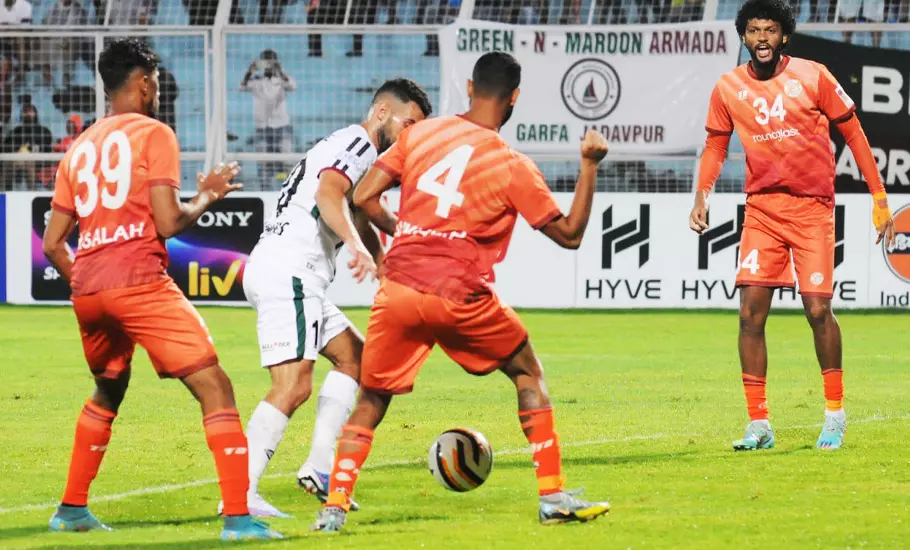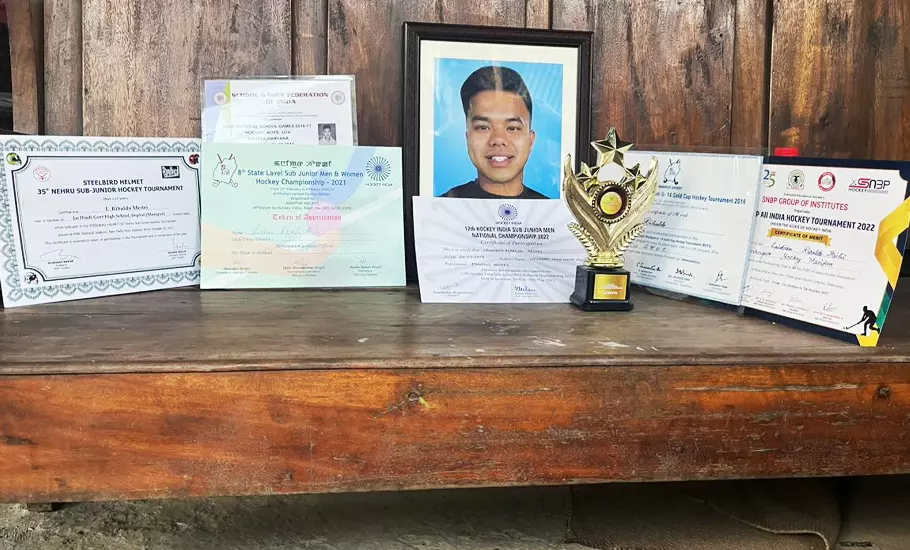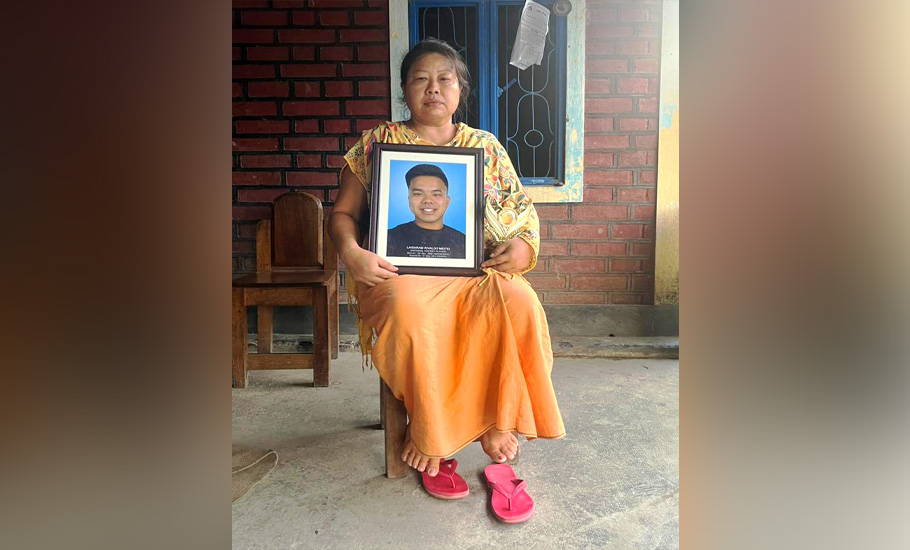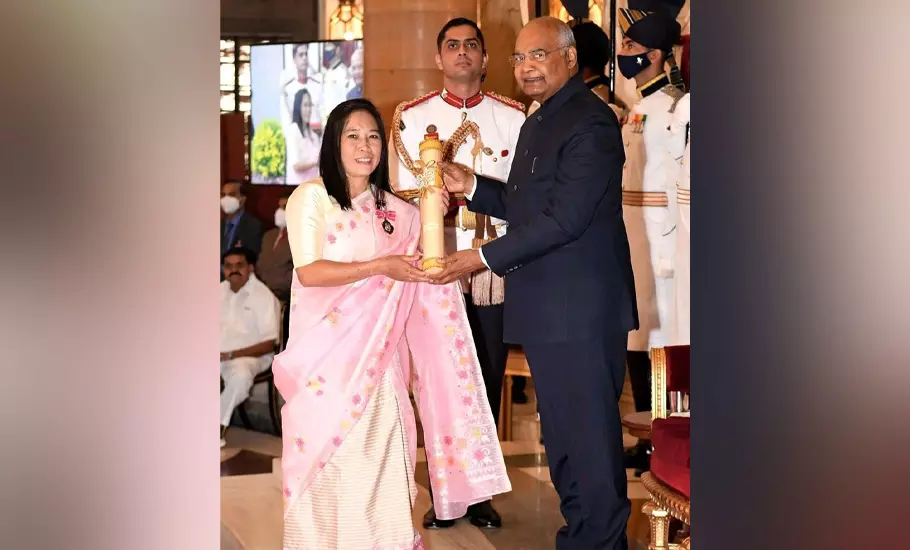
- Home
- India
- World
- Premium
- THE FEDERAL SPECIAL
- Analysis
- States
- Perspective
- Videos
- Sports
- Education
- Entertainment
- Elections
- Features
- Health
- Business
- Series
- In memoriam: Sheikh Mujibur Rahman
- Bishnoi's Men
- NEET TANGLE
- Economy Series
- Earth Day
- Kashmir’s Frozen Turbulence
- India@75
- The legend of Ramjanmabhoomi
- Liberalisation@30
- How to tame a dragon
- Celebrating biodiversity
- Farm Matters
- 50 days of solitude
- Bringing Migrants Home
- Budget 2020
- Jharkhand Votes
- The Federal Investigates
- The Federal Impact
- Vanishing Sand
- Gandhi @ 150
- Andhra Today
- Field report
- Operation Gulmarg
- Pandemic @1 Mn in India
- The Federal Year-End
- The Zero Year
- Science
- Brand studio
- Newsletter
- Elections 2024
- Events
- Home
- IndiaIndia
- World
- Analysis
- StatesStates
- PerspectivePerspective
- VideosVideos
- Sports
- Education
- Entertainment
- ElectionsElections
- Features
- Health
- BusinessBusiness
- Premium
- Loading...
Premium - Events
Why sport is both a casualty and ray of hope in Manipur
Krishnananda Singh Khundongbam and Khaimin Lhungdim — one Meitei and the other a Kuki — who are as alike as they are different are divided by ethnicity but united by their sportsmanship.


A peek into the locker room of the Punjab team currently camping in Kolkata for the Durand Cup offers a view which is typical of locker rooms. Jerseys and sports gear strewn around, towels hanging on benches and players bonding over light banter and strategy discussion for the next game.Part of this locker room are Krishnananda Singh Khundongbam and Khaimin Lhungdim who are as alike as they...
A peek into the locker room of the Punjab team currently camping in Kolkata for the Durand Cup offers a view which is typical of locker rooms. Jerseys and sports gear strewn around, towels hanging on benches and players bonding over light banter and strategy discussion for the next game.
Part of this locker room are Krishnananda Singh Khundongbam and Khaimin Lhungdim who are as alike as they are different. A football enthusiast will not take a minute to answer what Singh and Lhungdim have in common. The two are the mainstay of the I-League title holder RoundGlass Punjab FC. And both hail from Manipur.
But what many do not know is that Singh and Lhungdim belong to two different ethnic groups that are up in arms against each other in their home state in India’s Northeast.
Singh is a Meitei from Heirok in Thoubal district while Lhungdim is a Kuki from Churachandpur district. Both areas have been the hotbed of violence since May 4.

Football player Laishram Sanayima Meitei lost his life on May 5 in the Manipur violence.
Considering the schism between the two communities that led to their balkanisation in Manipur, one would imagine the two are at odds with each other, until one sees them bonding together, a sight that belies the ground reality in Manipur.
The Punjab team, in fact, has a strong contingent of eight players from Manipur. Six of them are Meiteis and two Kukis. Besides, two players are from the Mizo tribe, which considers itself an ethnic cousin of the Kuki community. Mizos are hence standing with the Kukis in the current conflict.
But the demographic divide that is so prominent in Manipur has failed to caste its evil shadow on this bunch of young players united by their passion for sports.
“We are best of friends. Because of this boding, we have very good understandings on and off the field. In Chandigarh — the hometown of the Punjab FC — we share a flat,” Lhungdim told The Federal, adding that the turmoil in their home state did not drive a wedge in their friendship.
His views are seconded by Krishnananda Singh.
Their camaraderie demonstrates the unique power of sports which brings people and communities together even at the time of crises clawing at the social fabric.
Their mutual trust, huddle, laugh and chat raise hope of bridging the divide between the communities torn apart by the ethnic conflicts.
“Only if their friendship is emulated in the larger society, peace would restore in the state,” said one of their teammates, who wanted to remain anonymous considering the sensitivity of the situation.
While the scenes from the Punjab dressing room prove sports is a great unifier, hundreds of kilometres away in Manipur sports and sportspersons too are suffering as many dreams are being cruelly snubbed by the current wave of mindless violence.
==
Laishram Sanayima Meitei wanted to see his son play for the Indian Hockey team but his dream was shattered on May 5, when his 20-year old-son Laishram Rivaldo Meitei was shot dead just a few kilometres away from his house in Imphal city.
The talented hockey player was killed in the ethnic violence which has torn apart Manipur since May 4.

Laishram Rivaldo Meitei’s mother with the photos of her deceased son.
“I wanted to see my son play for India but now it will never happen because the ethnic violence claimed his life. Not even in the worst nightmares I thought I would see my son’s body. He was a talented player who dreamed of representing India in the senior hockey team. His death brought an end not just to his dreams but ours too. My son was very disciplined and dedicated towards his sports. But the unfortunate night of May 5, took away my only son from me,” said Laishram Sanayima Meitei, father of the deceased Hockey player.
Rivaldo was an emerging national-level player from Manipur. He captained the Manipur sub-junior hockey team in Goa last season. He was set to be included in the Manipur team for the 13th Hockey India Junior Men's National Championship to be held in Rourkela in June.
Residents of the area say Rivaldo was killed after he stepped out to take stock of the tension in his area.
“We were alerted after violence broke out in Imphal city on May 4. Rivaldo was not allowed to go out of the house by his parents to ensure his safety. But on the evening of May 5, some Kuki people were found in our neighbourhood. There was an uproar following that and Rivaldo had stepped out to see what was going on. I stopped him but he went nevertheless. Then around 10.30 pm news came in that Rivaldo had been shot. He died before reaching the hospital,” Thibema Lima, a resident of Kongba said.
Rivaldo died but even for those alive, sporting dreams have become a casualty.
“The violence has damaged the careers of many budding players from Manipur as no tournament is happening in the state at the moment. Earlier, I had played in Durand Cup for NEROCA FC club of Manipur. But this time NEROCA FC did not participate in the tournament due to the ongoing violence and sponsorship issues,” said Lhungdim.
On July 17, training resumed in Imphal but not a single Kuki player returned. Both communities are holding their forts tight and movement from hills to the plains for Kukis and from plains to the hills for Meitei people is close to impossible. Scores who lost their houses in the violence continue to live in relief camps.
Former Indian football captain Oinam Bembem Devi believes that the violence has filled lives of players, especially the budding players, with despair. Due to continuous curfew in the state, players are afraid to come to the ground for training.
Football player Oinam Bembem Devi, who is a recipient of both Arjuna Award and Padma Shri, had also met Union Home Minister Amit Shah during his visit to Imphal, requesting him to stop the violence and ensure peace in Manipur.
“If the government fails to control the situation. I would return all my awards,” she said.
Asked why she threatened to return her state honour, Bembem Devi told The Federal, “It is about Manipur and it is necessary to save our state from violence. What will we do with these awards if our state is not saved? That's why Kunjrani Devi, Sarita Devi, Sonia Chanu, Sushila Devi and many senior players, including Sandhya Rani Devi, had decided to return their awards to the government.”
“It is a very important time for our sportspersons as the Asian Games are coming up in September-October and selection and trials for many sports are underway. Because of the situation prevailing in the state, sporting events have been suspended in Manipur,” she said.
“If the players do not play club-level tournaments or do not train properly, then how will they participate in the camps for different games. Before the India camp, the players have to work on their fitness level. But due to the videos showing violence going viral, there is fear in the minds of the players as well. We want both the communities to do this to establish peace in the state,” Bembem Devi said.
Sebastian Thangmuansang, who played for the Mohammedan Sporting Club of Kolkata till last year, is also very worried about the ongoing violence in Manipur and its impact on the players.
Sebastian, who comes from the Kuki tribe, said, “We have to do training to improve our performance. But it is not safe to go to the football ground at this time because of the violence. There is firing in the area. All players have been adversely impacted due to the violent conflict.”
Manipur is considered one of the centres of Indian football as it has been producing excellent football players over the years.
Six youth football players from Manipur were selected in the Indian National team for the qualifiers for the 2022 FIFA World Cup in Qatar and the 2023 AFC Asian Cup.
At the same time, eight players were from Manipur in the Indian women's and men's team that participated in the Under-17 Football World Cup in the year 2017.
Give the situation, Manipur’s famous football clubs NEROCA FC and TRAU FC are unable to participate in this year’s Durand Cup. Ironically, in 2022, Manipur had co-hosted the Durand Cup.
Manipur, which has only 0.24 per cent share in the total population of India, has produced about 19 Olympic-level players since 1984, who have represented India.

Football player Oinam Bembem Devi says the future of players in Manipur is at risk.
From Mary Kom (boxing) to Sushila Chanu (hockey), S Neelakanta (hockey), Mirabai Chanu (weightlifting), Devendro Singh (boxing) and L Sushila Devi (judo), countless sportspersons have brought laurels to India.
Manipur has also dominated the Indian women's hockey team. Till 2022, eight players had been selected from Manipur in the senior women's national team.
Some players who left their marks in the Indian football team, including Gouramangi Singh Mourang them, Surkumar Singh and Renedy Singh are still remembered.
For now, sportspersons in Manipur have no option but to wait for violence to cease and normalcy to be restored. Bonds like that established in the locker room of the Punjab FC in Kolkata could help accelerate the process of this restoration of peace and normalcy.
